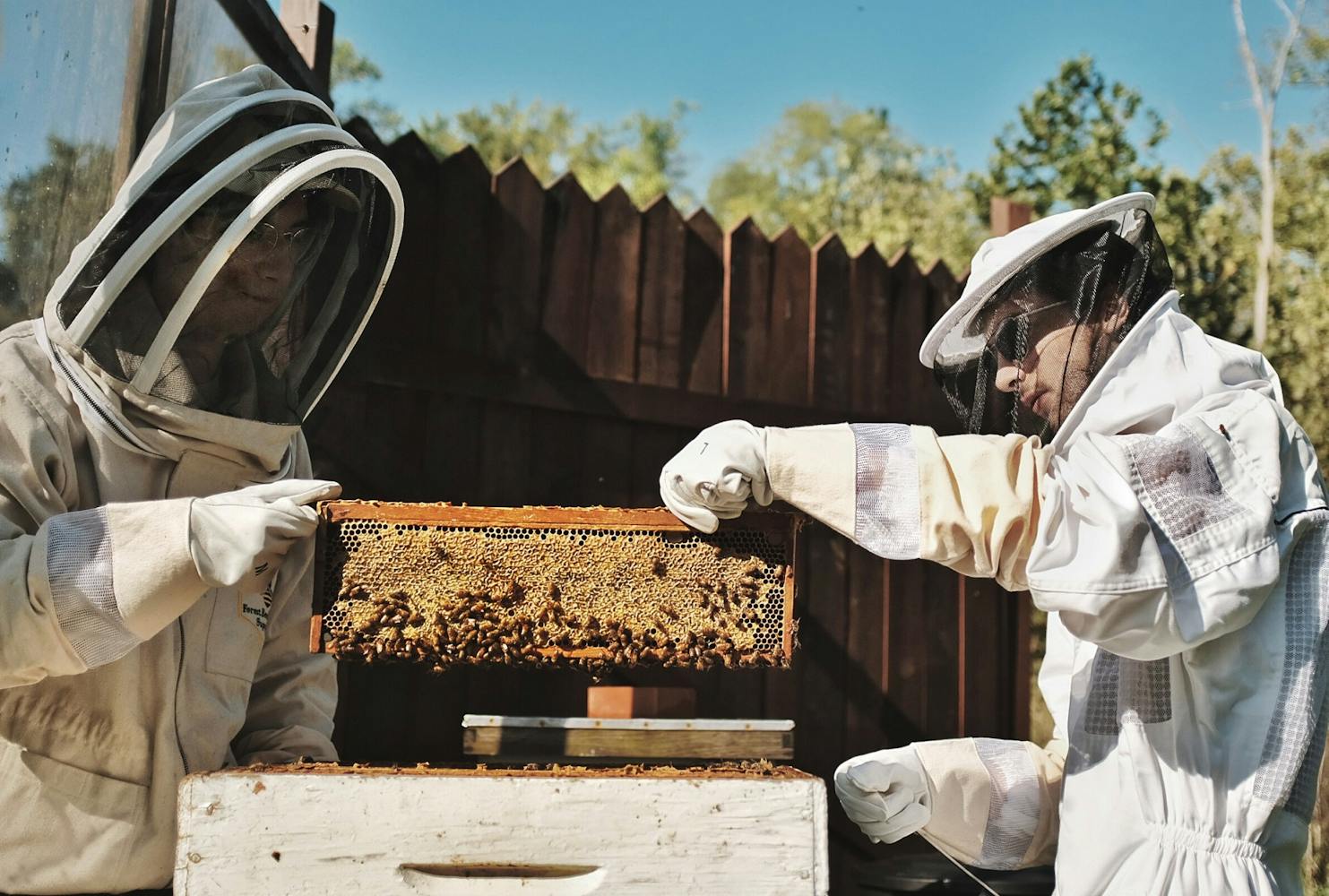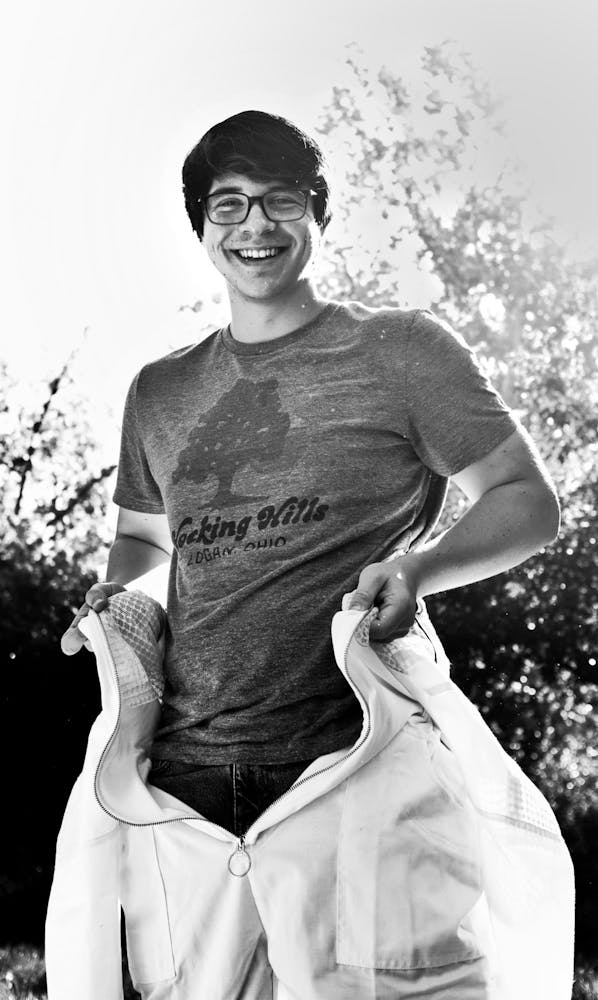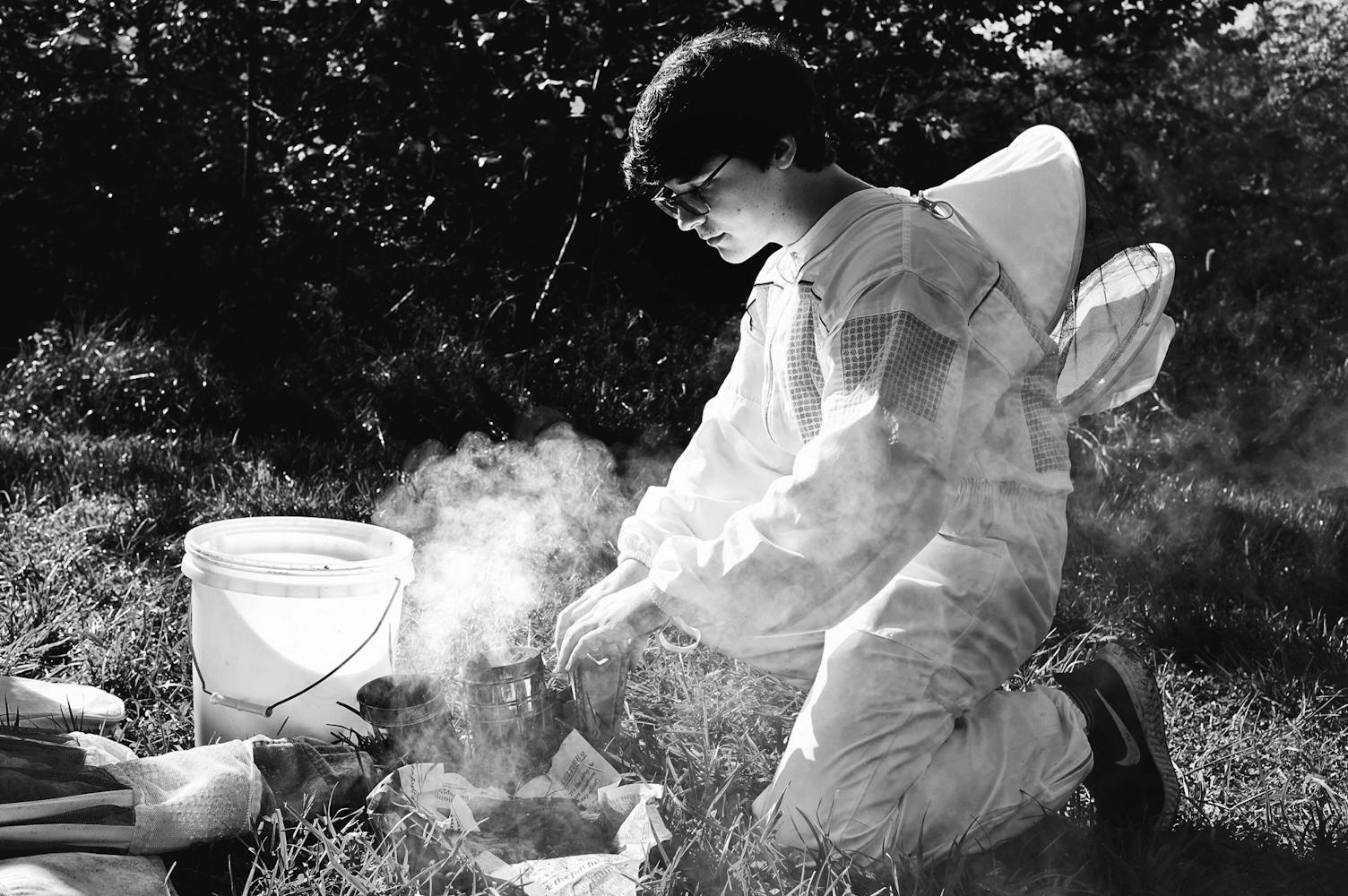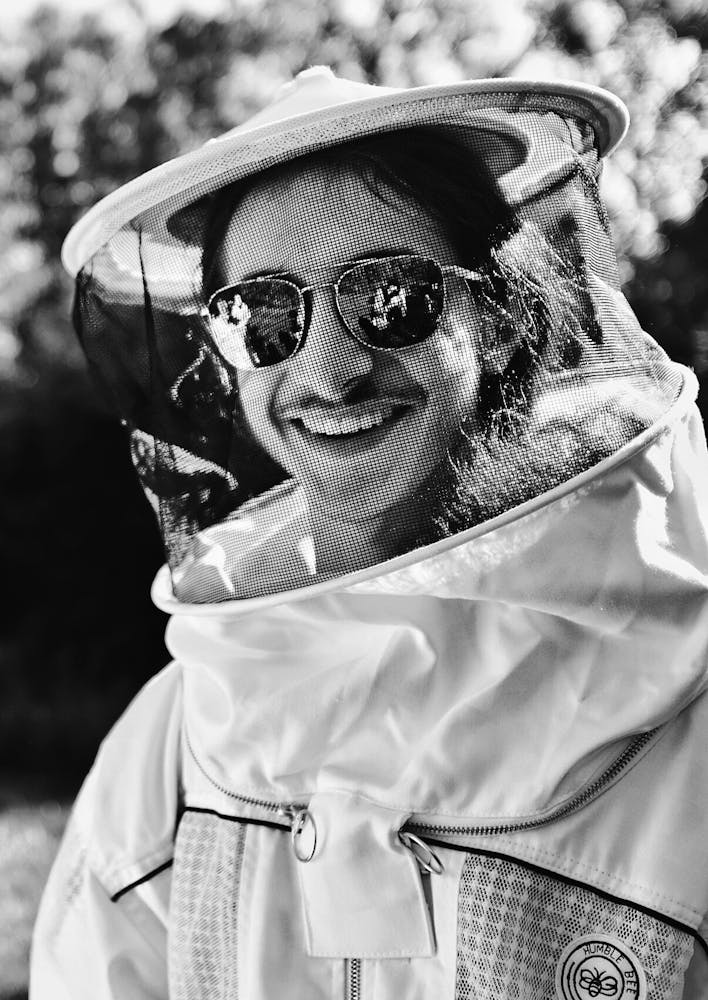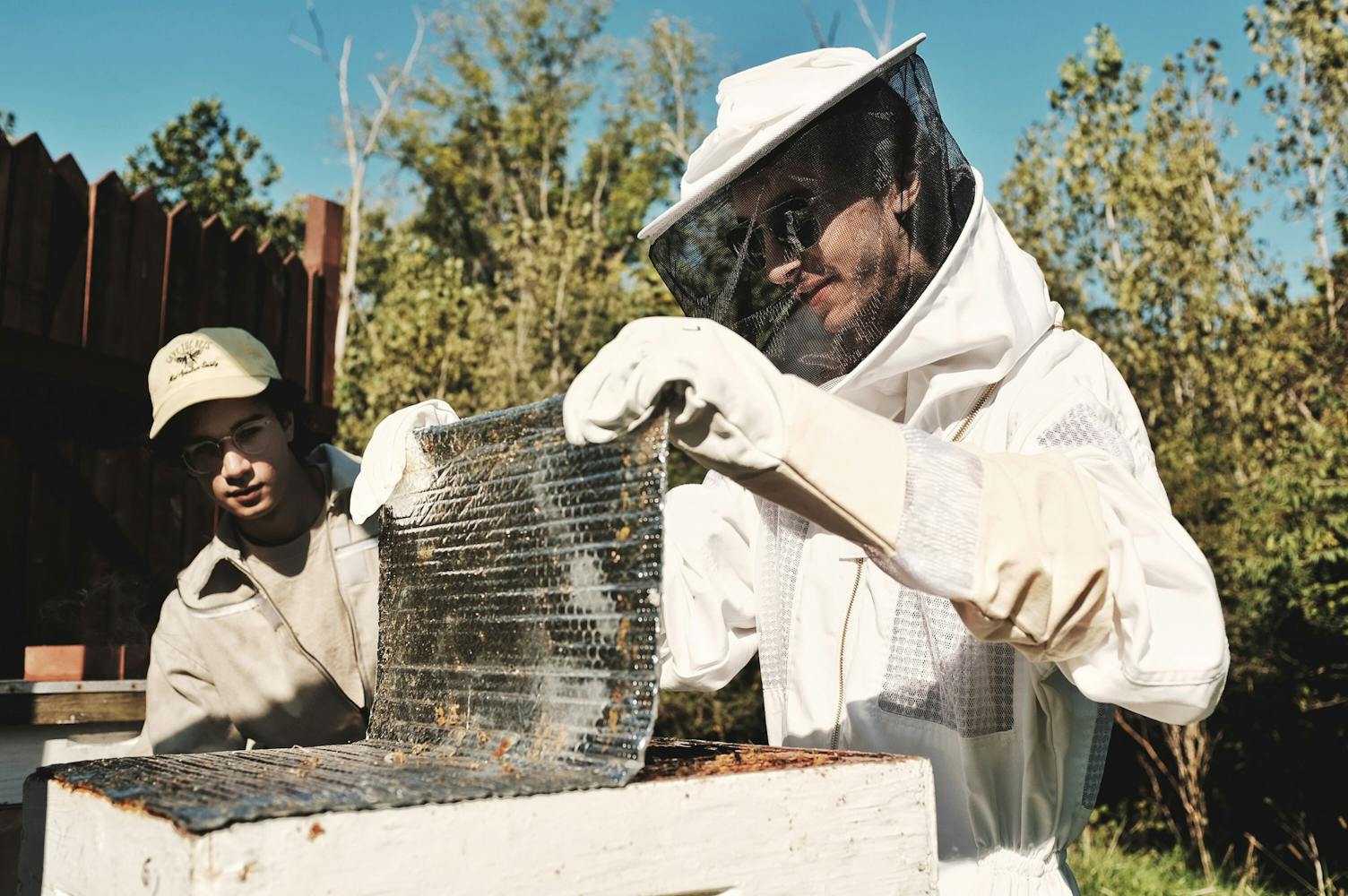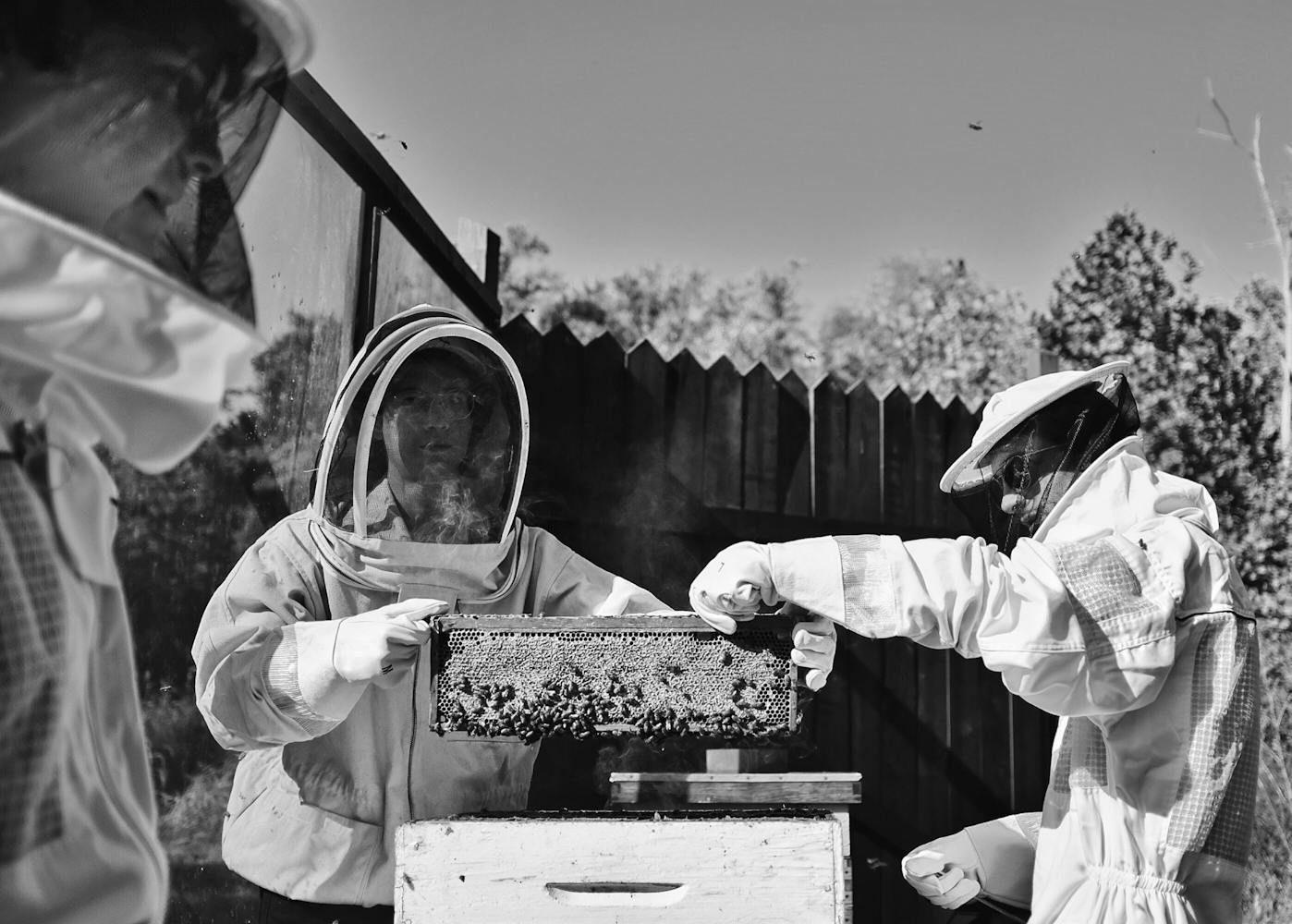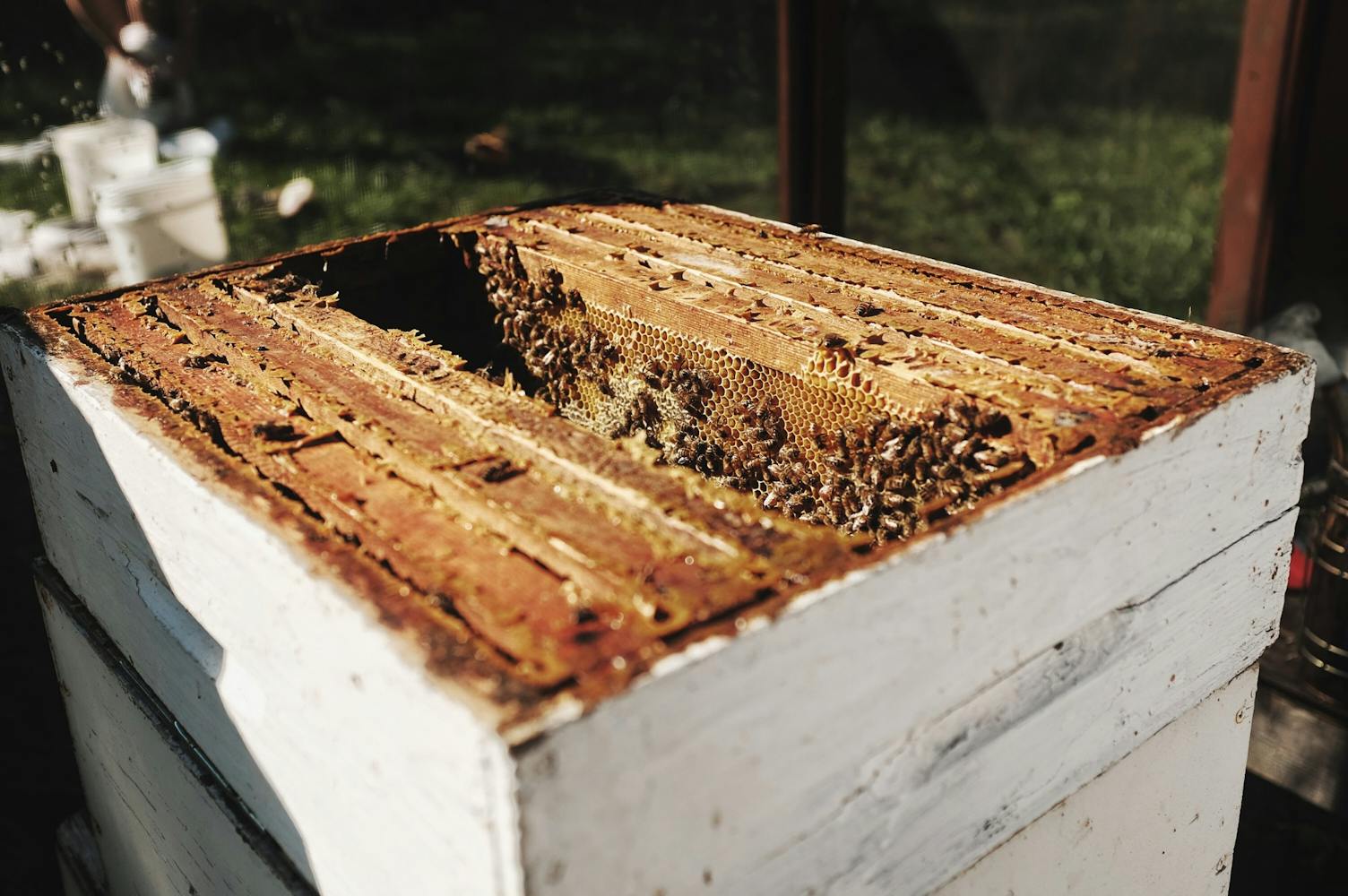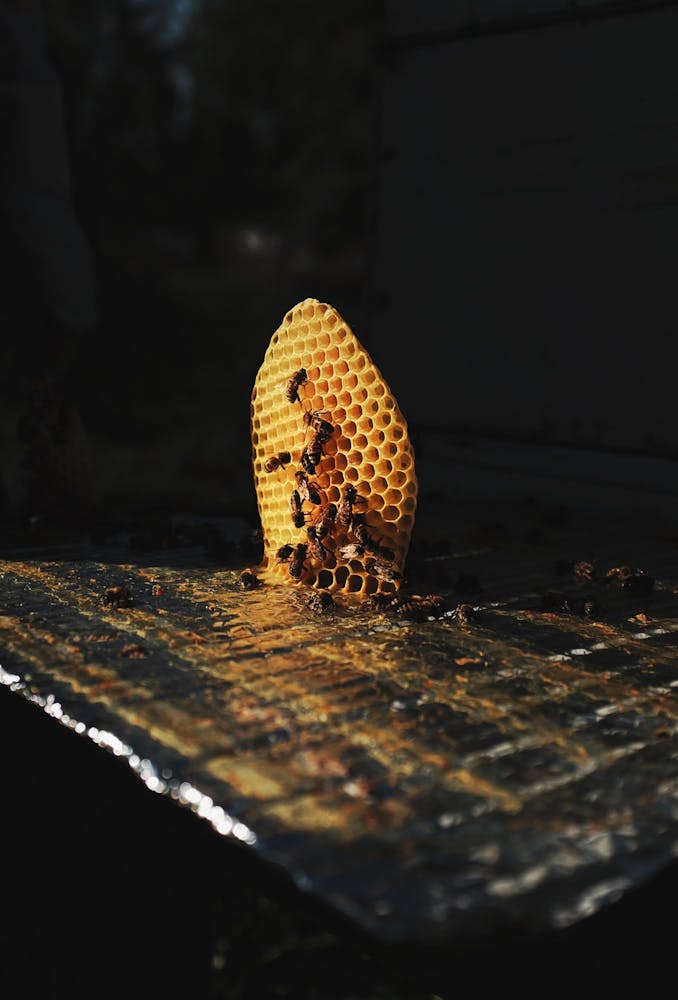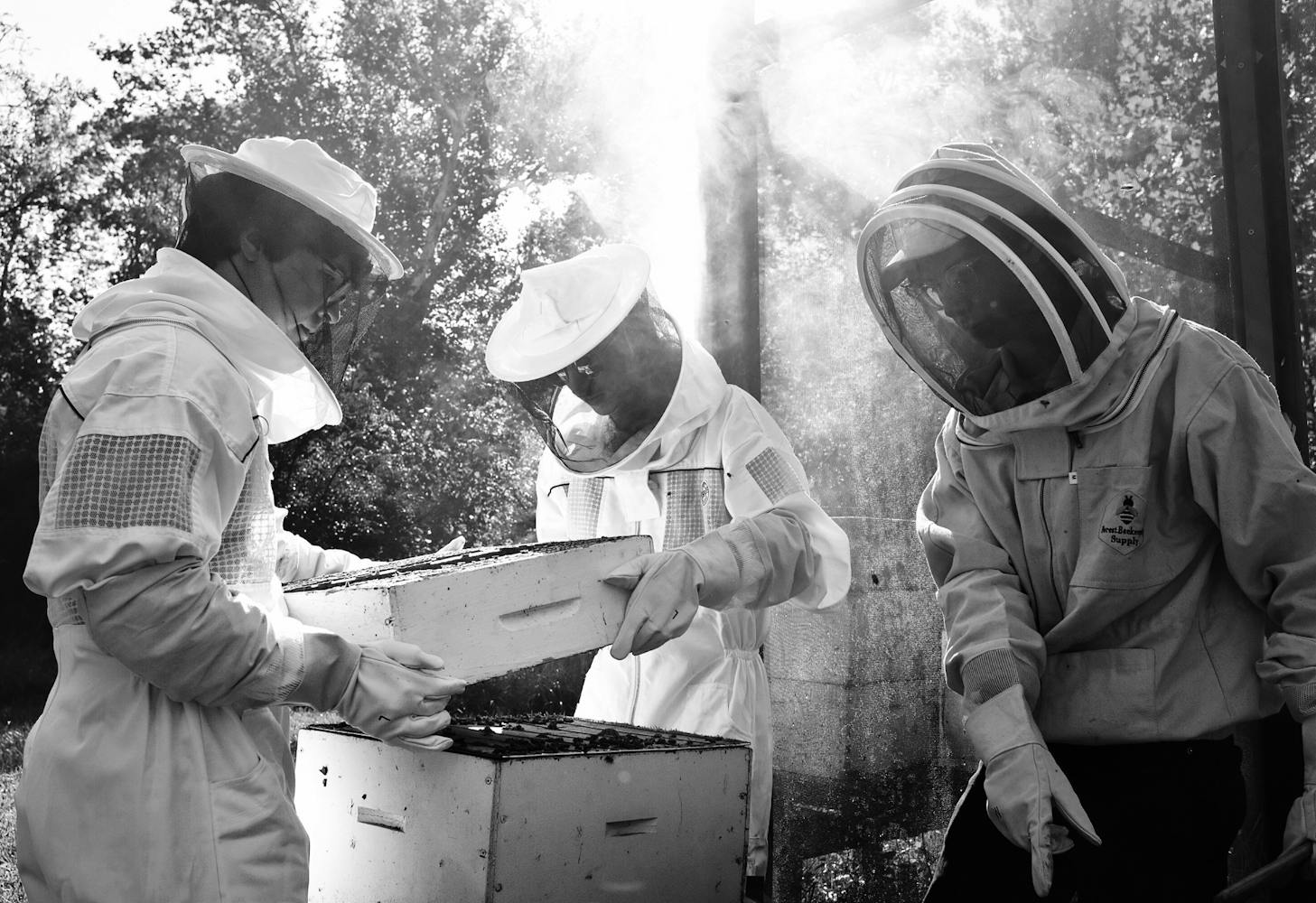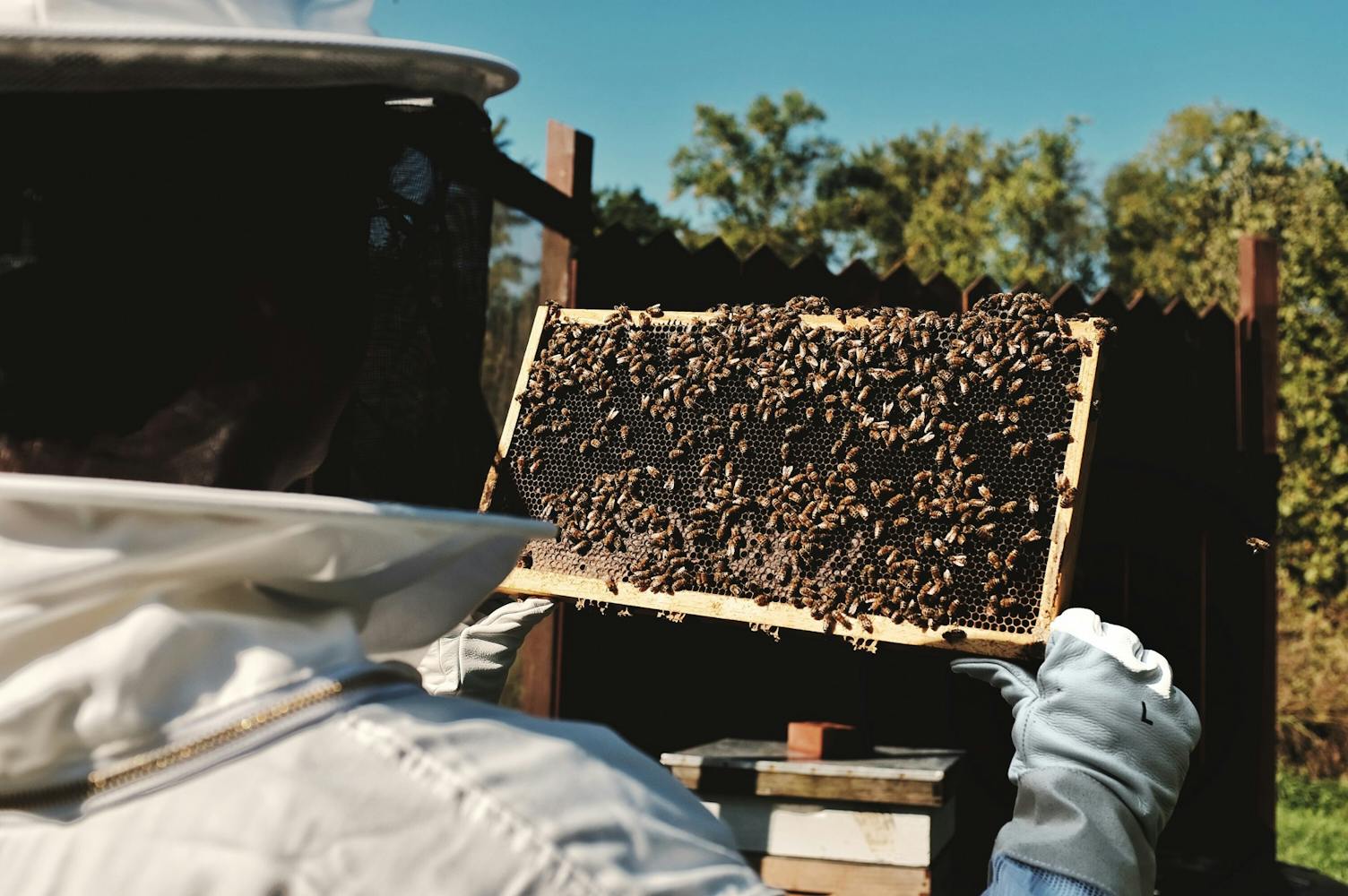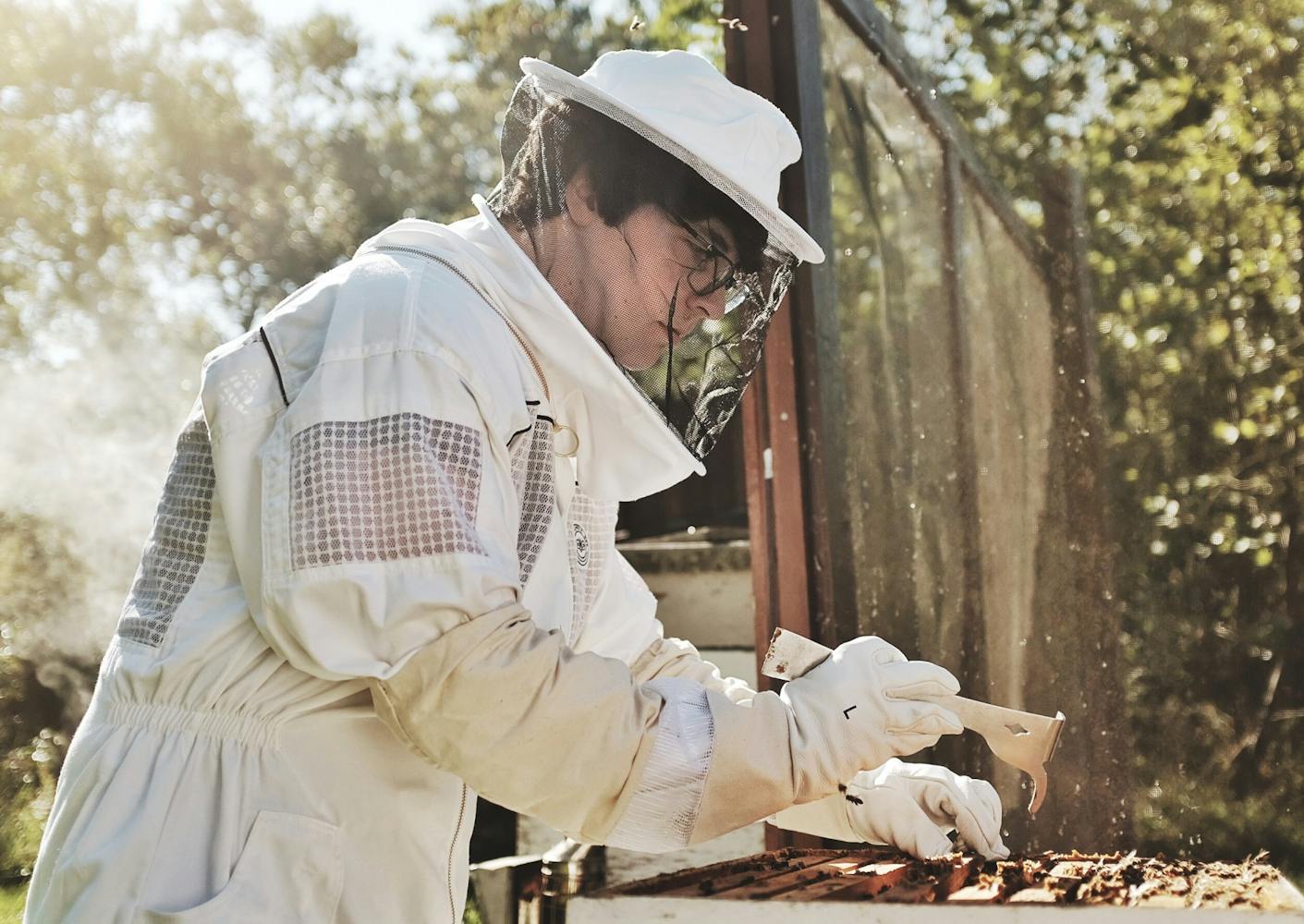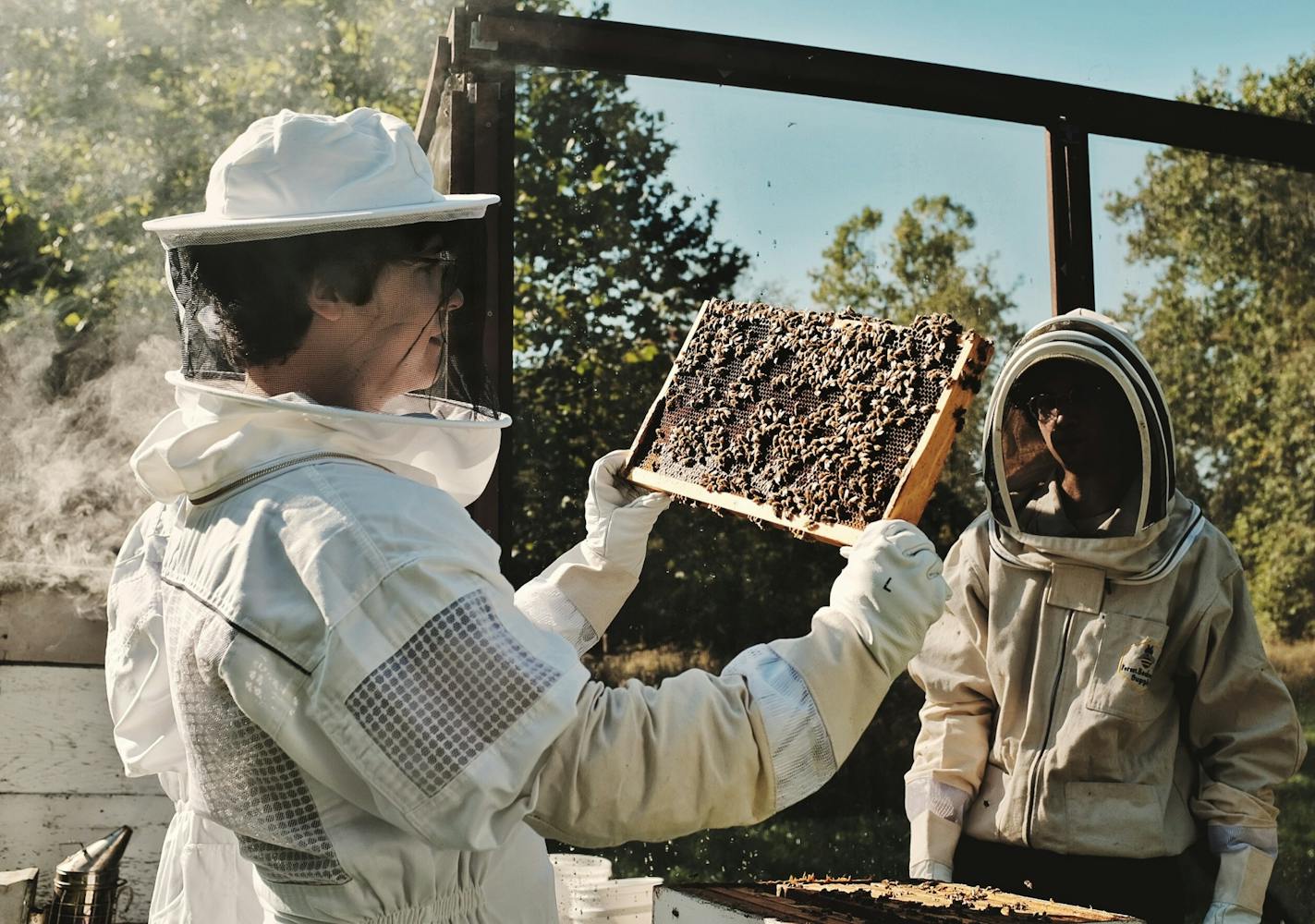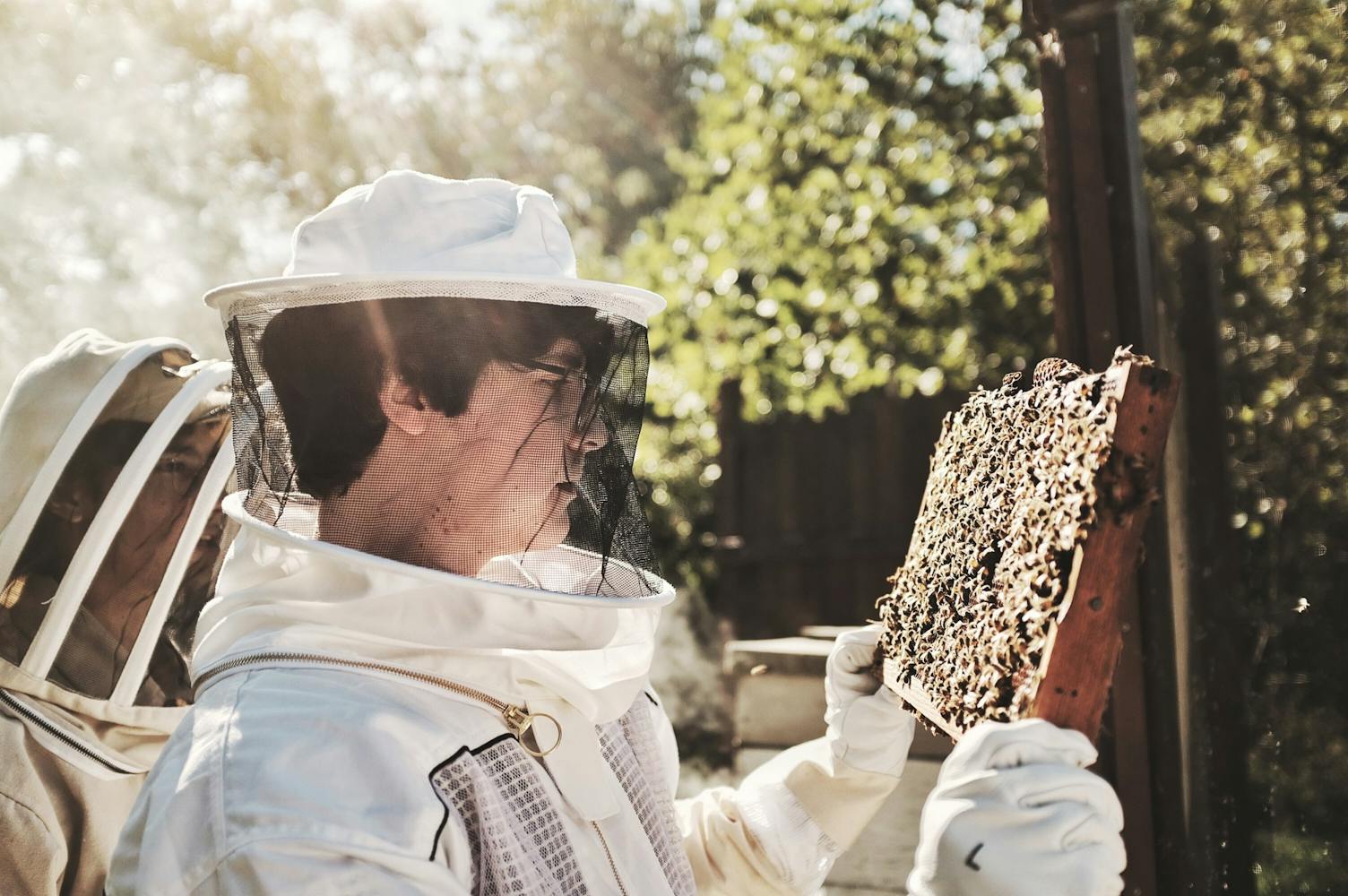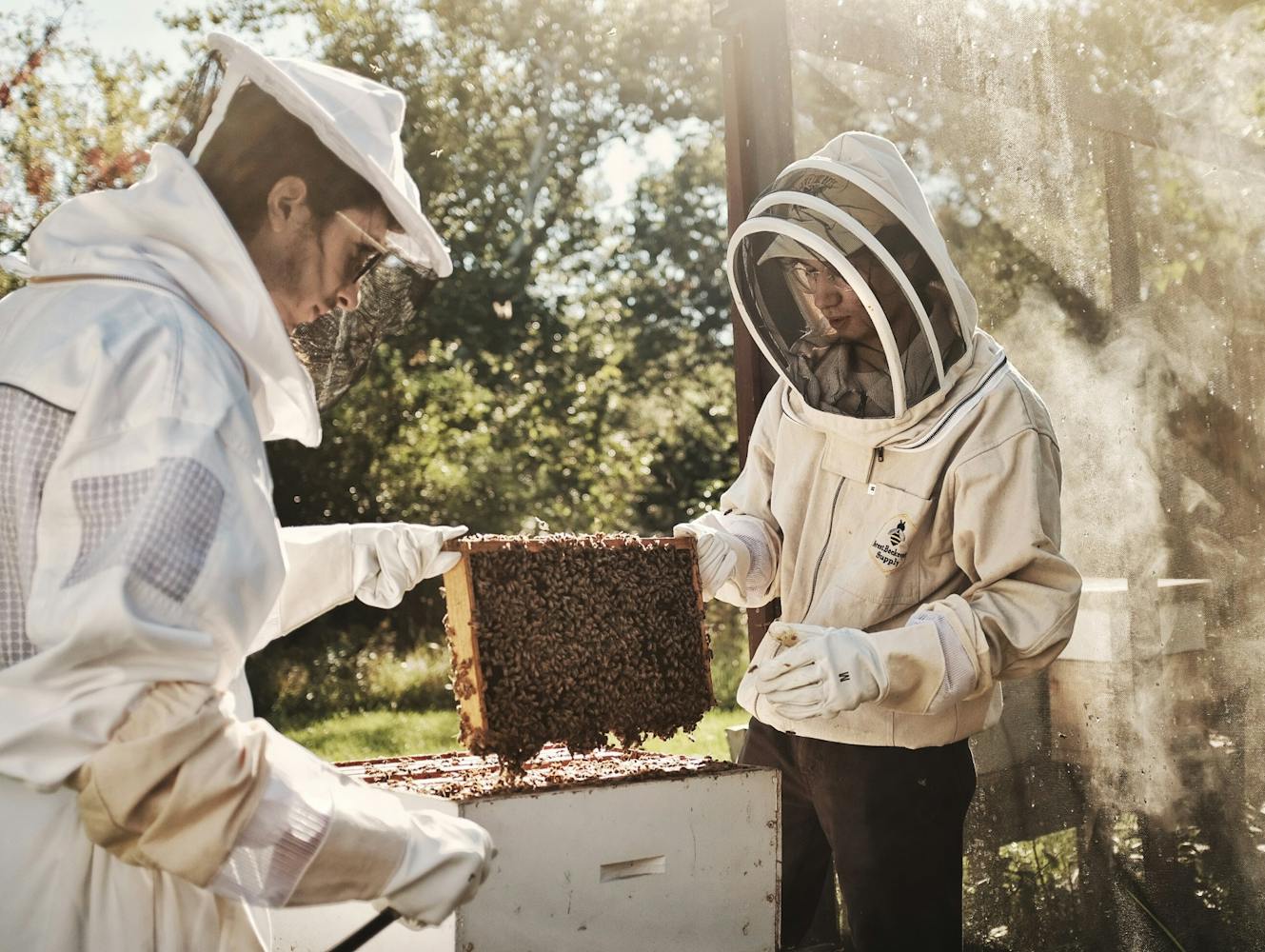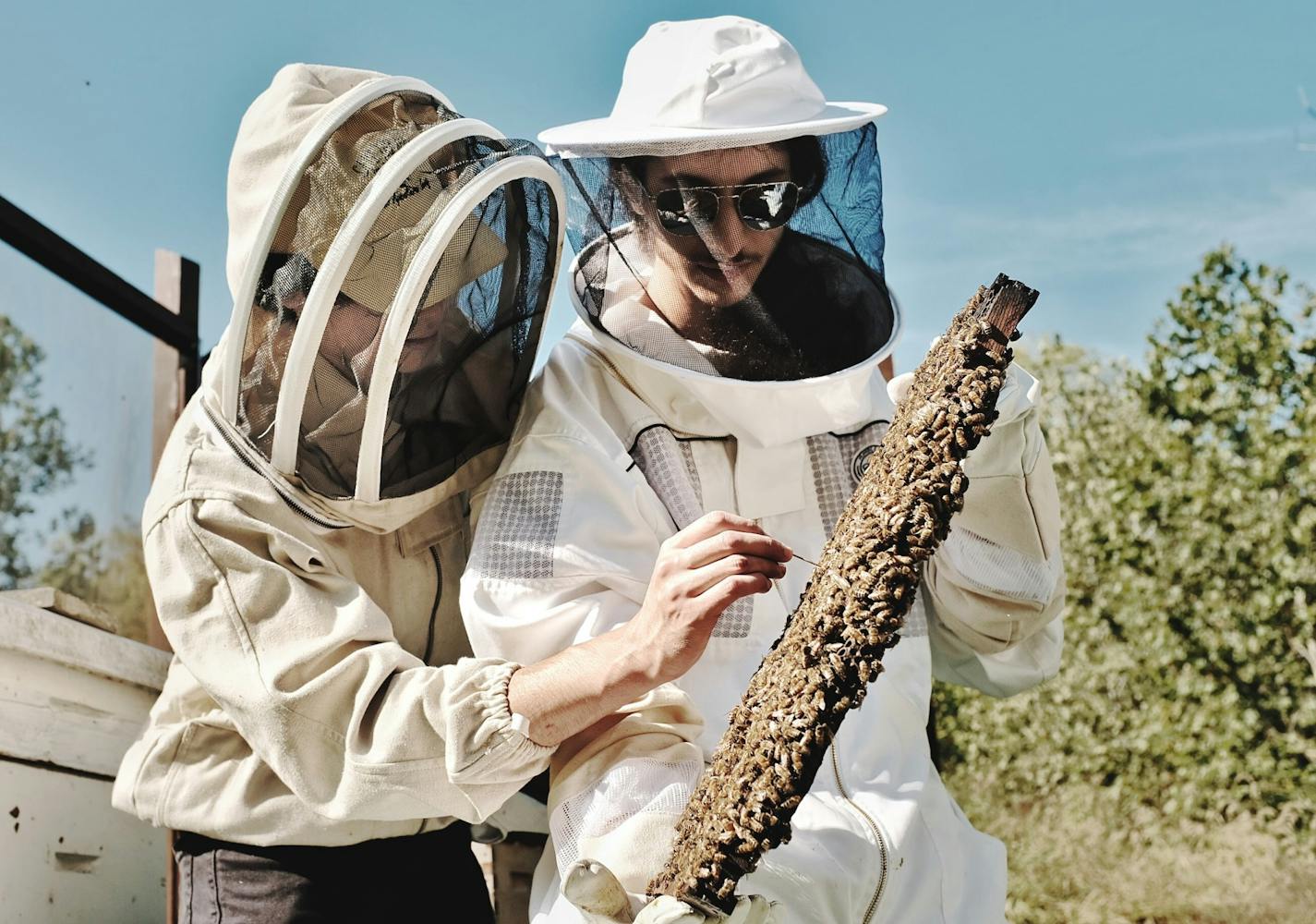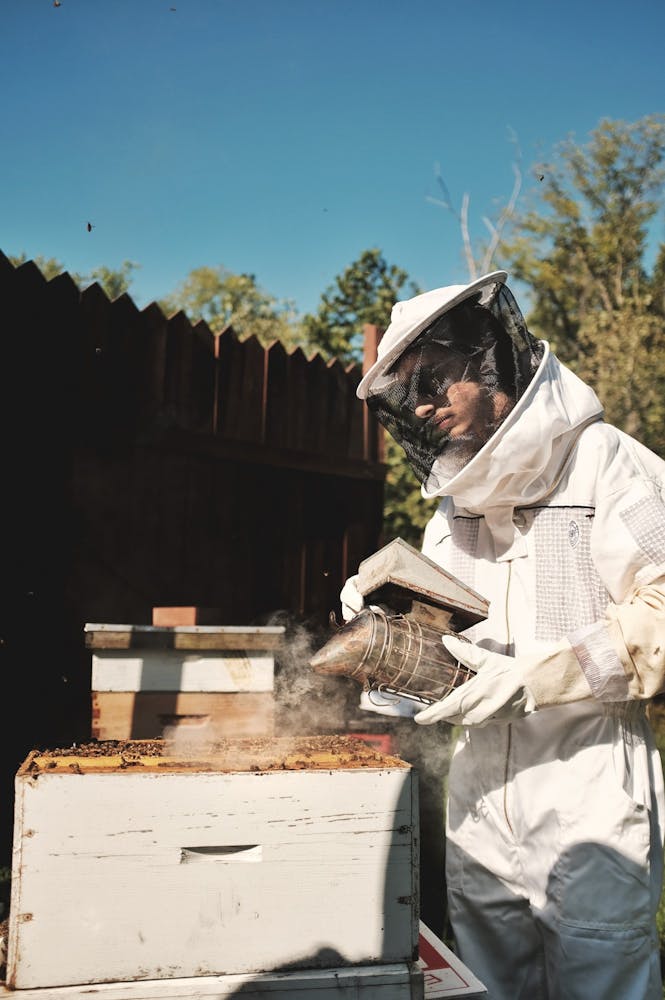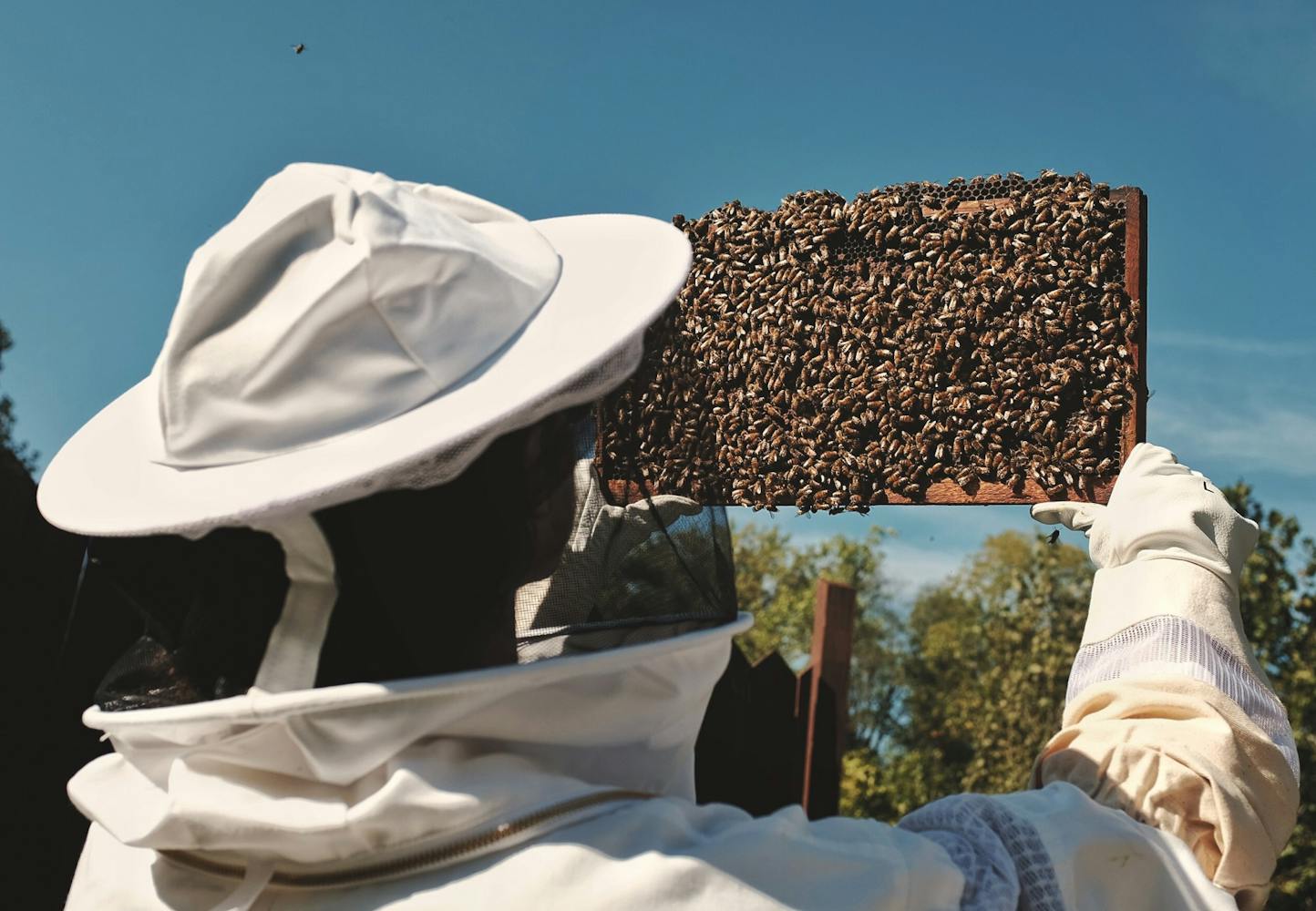For most students, Saturdays are for sleeping in after a too busy week or recovery from a fun-filled Friday night.
But for students in the Miami Apiculture Society, Saturday mornings mean trekking out to the meadow behind Boyd Hall to check on the four hives that the club monitors, housing a combined total of 120,000 bees.
The Miami Apiculture Society (MAS) is the first student-run beekeeping organization on Miami University’s campus. The club welcomes students from all backgrounds, regardless of whether they have beekeeping experience.
One student who joined with no prior experience was Rocco Huston, or “Roccomb Hiveston” as he is known in the organization’s GroupMe chat, aptly titled “GroupBee.” A senior microbiology major, Huston serves as the club’s president. He joined as a first-year in 2018 after researching it for a University 101 class assignment and has watched club attendance triple over the years.
“In the very first meetings a max of 10 people would come, and different people would come to different things,” Huston said. “We had a pretty big dip in attendance [due to COVID-19] but now we’ve had a lot of interest from everyone — it’s amazing.”
Members of MAS do more than just beekeeping — they also participate in activities like painting bee-themed rocks and planning events centered around bees.
“We kind of do a grab bag of different things,” Huston said. “Before COVID-19 we would do bee prom, which was a big get together that we did at the end of the spring semester. We also did “Fambee” Feud this semester, where we sent out a survey with lots of questions, and people formed teams to compete with others and answer them.”
The other main type of meeting that MAS members attend are hive inspections, where members have the chance to don beekeeping suits and check up on the four hives behind Boyd Hall.
Senior geography and sustainability major Armando Cabrera, “Armando Cabeera” in the “GroupBee,” serves as the beemaster general for the club. He ensures that hive inspections go smoothly and helps educate members on beekeeping in general.
He explained that hive inspections were more than just looking at the bees for a while.
“We try to do inspections every Saturday, but we sometimes do it on a different day of the week, weather depending — the weather has to be above 60 [degrees Fahrenheit] and not rainy,” Cabrera said. “What we do varies, but it basically boils down to opening up hives, seeing how bees are, and sometimes we’ll do sugar shakes, checking for mites or demonstrations.”
One of the biggest threats posed to bees today is the varroa mite, an invasive species that has established itself in almost every beehive and, in vampire-like style, preys on the hemolymph (blood) of honeybees.
Enjoy what you're reading?
Signup for our newsletter
Cabrera said MAS checks for mites in hives through the sugar shake, an innovative method that helps determine how many mites are in a hive.
“We take a sample size of 300 bees and cover them in sugar so the bees shake themselves off,” Cabrera said. “We then filter, pour water [into the jar apparatus], and the sugar dissolves but the mites don’t. Using alcohol to check for mites is more accurate, but it kills the bees and this method spares them all — I don’t think I could lead inspections where we kill 300 bees per hive in front of everyone.”
MAS doesn’t spend all of its time monitoring the bees for pests, though. Members also harvest honey from the hives with a honey extractor, a device that spins the desired beehive frames around so the honey can collect at the bottom.
“I love the honey,” Cabrera said. “I remember the [extracted honey] two years ago had a really interesting botanical quality — it tasted like fresh meadow flowers and whatever smell came out of the meadow.”
Cabrera shared a fun fact about how bees get attracted to certain flowers.
“The way flowers encourage bees to come back is that they lay trace amounts of nicotine in their nectar and it gives the bees a rush, which drugs them to come back to the flower,” Cabrera said.
MAS gets things like honey extractors from Alex Zomchek, a researcher and apiculturist at Miami who serves as a mentor and advisor to the students in the club. He said that beekeeping is important because bees and other pollinators are crucial to the health of humans.
“The short equation is that bees equal health,” Zomchek said. “The longer equation is that in order to have a healthy healthcare system you need healthy people. To have healthy people you have to have good nutrition, to have good nutrition you gotta have abundant and affordable fruits and vegetables. To have that, you need pollinators, and to keep pollinators you need beekeepers.”
The Miami Apiculture Society currently meets at 6 p.m. in 201 Upham Hall on Mondays. Find them on the Hub or email beemail@miamioh.edu for more information.

